-
Posts
207 -
Joined
-
Last visited
Content Type
Profiles
Forums
Downloads
Posts posted by asd
-
-
Thursday, August 31, 2006
23 Yala banks hit by bomb blasts
The bombs, mostly left on bank counters and some in ATM booths at the banks, were detonated mostly by clocks. Twenty six people suffered minor injuries. The militants, disguised as students, planted the home-made bombs inside the banks hours before the blasts.
Thawansak Paenae was allegedly caught in security footage by a CCTV system at the Bangkok Bank (BBL) in Betong district. He carried bomb hidden in handbag.
At least 1,300 people have been killed since unrest broke out in January 2004 in Yala , Pattani and Narathiwat provinces. After ousting Thaksin in a coup last September, junta leader Sonthi Boonyaratglin and Surayud Chulanont launched a raft of peace efforts in southern Thailand.
Surayud Chulanont said. "Don't make a too quick judgement before the investigation concludes on whether the southern unrest has intensified and moved to Bangkok."
-
Appeals for calm ahead of Asean final
Thailand and Singapore fans on Saturday were urged to stay calm at the potentially volatile Asean football championships decider here, after controversy marred this week's first leg.
Officials of both sides appealed for restraint ahead of Sunday's match, which Singapore enter 2-1 ahead thanks to a hotly disputed penalty which sparked a 15-minute walk-off by the Thai players.
The Asean Football Federation (AFF) will discuss possible sanctions against Thailand before the match at Bangkok's national stadium, where fans will be guarded by 300 police and barred from carrying bottled drinks.
Thailand's team manager, Thavatchai Sajakul, held a joint press conference with Singapore coach Radojko Avramovic to call for fans to behave.
"I hope to see a hospitable crowd in the stadium for our visitors," Thavatchai said.
"I like to say that football is a sport which aims to bring people together and create close cooperation," added Avramovic.
Thailand were drawing 1-1 in the first leg in Singapore when Malaysian referee C. Ravichandran awarded a dubious penalty, prompting shambolic scenes as the visitors stormed off the pitch and refused to play.
Mustafic Fahrudin converted the spot kick when order was restored.
Diplomatic problems have also given the match added tension.
Thais were outraged when Singapore's state investment arm bought telecoms giant Shin Corp in a controversial tax-free deal from the family of former prime minister Thaksin Shinawatra, who was ousted in a September coup.
Bilateral ties soured further when Thaksin met Singapore Deputy Prime Minister S. Jayakumar last month, drawing protests from Thailand's military leadership.
However, Major General Vanich Surapholchai from the Thai metropolitan police was confident Thai supporters would not target the 2,000 Singapore fans expected to travel.
"They will sit in a different corner. I am sure that Thai fans are disciplined enough to differentiate between sports and politics," Vanich said.
The Thai Football Association said some 30,000 tickets sold out within a few hours on Saturday.
Agence France-Presse
--------------------------------------------------
Thai fans wait eagerly in long queues to buy tickets at the Supachalasai Stadium Saturday. Many of them were disappointed and failed to get tickets for the second leg of the Asean Football Championship which will be held Sunday. Some 20,000 tickets were sold out in two hours.
Tickets are 100, 200 and 300 baht.
-
I thought referee was going to book me
The referee's poor decision created the problem
The Singaporean football player who was awarded a penalty thinks the spot kick should not have been given, as he makes a revelation:
Noh Alam Shah, the Singapore striker awarded a controversial penalty fiercely protested at by the Thai squad, has admitted he thinks the spot kick should not have been given.
The foul led to Singapore scoring the decisive goal in an ill-tempered Asean Football Championship final first leg.
Wednesday's heated contest ended dramatically after Malaysian referee C Ravichandran awarded the disputed penalty eight minutes from time. The hosts converted to take a 2-1 advantage into Sunday's second leg in Bangkok.
Alam Shah tumbled in the box as he and Thailand defender Niweat Siriwong jostled for the ball from a left-side free kick. Alam Shah appeared to fall accidentally.
The referee's decision plunged the game into turmoil. The Thai players vociferously protested and walked off for about 15 minutes.
"I was stunned. I did not expect a penalty," Alam Shah is quoted in Singapore's Straits Times yesterday.
"When I first saw the referee walking towards me I thought he was going to book me," he said. Alam Shah would have missed Sunday's leg if he had been yellow-carded.
The Singapore football team celebrates
The penalty also surprised Alam Shah's team mates.
Shahril Ishak, near Alam Shah when he went down, said: "I was preparing to go back to my own half, because I thought a free-kick would be given to the Thais."
Nigerian-born defender Precious Emuejeraye agreed: "I thought the referee was going to book Alam Shah for a foul."
"I was surprised when he pointed to the spot instead," said the burly centre-half.
The Asean Football Championship second-leg showdown between Thailand and defending champions Singapore will go ahead as scheduled, but the Thai team still faces possible action for its protest from the Asean Football Federation (AFF), which meets tomorrow.
The AFF is examining match-commissioner and referee-inspector reports of a game tainted by dubious decisions.
Once the regional body delivers its decision to the Asian Football Confederation the latter will decide if there will be further action.
The controversial first-leg result has served only to stir up emotion in Thailand amid growing bad-blood between the two countries following the diplomatic spat over a recent visit by ousted prime minister Thaksin Shinawatra to the city-state.
Malaysian referee C. Ravichandran
A hostile atmosphere is expected in Bangkok, and the Football Association of Thailand (FAT) will beef up security at the game.
FAT honorary life president Chaiyapak Siriwat said 500 security officers would be present. He insisted Thailand would do its utmost to prevent incidents before, during and after the game. Special attention will be given to the safety of Singapore's players and travelling fans.
"The second leg has become a volatile issue which we must handle carefully, considering every aspect. I would like Thai fans to be good hosts," Chaiyapak said.
"What's done is done. We don't want the second match to end in the same manner. Player morale is good, and I believe we will win and win in a manner Thai fans can be proud of.
"Given the performance we gave in the first game, I'm convinced we are better than they are," said Chaiyapak.
However, reports in Singapore suggest fans there are worried about the uproar in this country and have cancelled travel plans.
The dust has yet to settle. A report in Thai-language newspaper Siam Sport claimed the result had been fixed so Singapore could profit from bets and fund multibillion-dollar sports developments as its prepares for a 2014 Commonwealth Games bid.
The Nation
-
Thaksin hired US-based lobbying company Barbour, Griffith & Rogers (BGR) to counter the government.
He gained media exposure from CNN, the Wall Street Journal Asia, the Economist, Newsweek and TIME magazine.
He has been attempting to create an international image that he was an elected leader removed unconstitutionally by a military coup, that he had done so many good things for Thailand and that without him Thailand has gone off track.
---------------------------------------------------------------------
Former Thai PM Thaksin: "I'm Calling It Quits"
TIME magazine
Since he was toppled from power last September, Thaksin Shinawatra has been crisscrossing the globe. TIME's Southeast Asia Bureau Chief Hannah Beech caught up with Thailand's former Prime Minister on Jan. 25 in Tokyo, where they spoke about the military coup against him, the new regime in Bangkok, and what he intends to do with his life. Excerpts:
TIME: You've asserted that you and your old political party, Thai Rak Thai, were highly popular. Yet there was hardly any public outcry against the coup.
THAKSIN: It was the same with Thailand's 17 other coups. First, the people are shocked. Then they start to voice their concerns. And then they start to accept it, especially after it's endorsed by His Majesty the King. They're very disciplined. They obey. But they are watching what [the new rulers] are doing, and when they will return democracy to the people. People's tolerance is limited.
The new government has been responsible for controversial policies—the capital controls in December, and the proposed changes to the Foreign Business Act that could limit overseas ownership of companies in Thailand. What do you think of such moves?
No one can adopt protectionism anymore. Thailand has to be ready for globalization—you cannot turn your back on it. Anything that reverses what is already very open will cause confusion and uncertainty. This is when investors pull out.
You've met with business leaders in Japan, which is traditionally the biggest foreign investor in Thailand. What did you tell them?
I said this is a hiccup for Thailand, to not lose confidence in the country, that democracy will prevail and that their investments will bear fruit.
The junta has claimed that forces loyal to you were responsible for the New Year's Eve bombings in Bangkok. How do you respond?
I absolutely deny any connection. [Those responsible] must be brought to justice. Pointing a finger at somebody else, without evidence and investigation, is not right.
The junta also accuses you and your government of corruption.
The allegations are baseless. I asked very detailed questions about projects that went to the Cabinet for approval, and I shot down many of them. In all the previous 17 coups, corruption was one of the excuses. But some juntas ended up being more corrupt. At any rate, corruption will not go away in Thailand—it's in the system.
You have criticized the junta for muzzling the media, but you were accused of doing the same during your time in office.
The press printed groundless information about me. The press should not print unless it has all the facts because this can hurt the reputations of others. So I criticized them; sometimes I used strong words.
You did more than just express strong words. You slapped lawsuits on newspapers that printed things you didn't like.
That was the only way I could seek justice. But I never intervened in their activities or closed them down.
How mature is Thailand's democracy?
Without democracy it's not possible for Thailand to prosper, because without democracy, we will not get the trust and confidence [of investors] to develop the country. If you look at the development of civilizations, the first curve of civilization is military, or the prestige game. The second curve is industrialization, or the wealth game. The current curve is the wisdom game—information technology. We have to compete in the wisdom game; we should not be competing in the prestige game. But [the junta] wants to bring the country backward. That is not good. You should take the country forward.
Will you return to politics?
Right after I was ousted by the coup, I had mixed feelings. The negative feeling was that this was unfortunate for Thailand and its democracy, that the confidence I tried very hard to restore after the 1997 financial crisis would be lost. The positive part was, oh, I can retire now, I can have time for myself, for my family, I can meet friends and relax. Life is not that long, so if you can bring some happiness to yourself and your family, that's good ... I'm quite confident that if I ran [for election] today, I would win, [but] I have no political ambitions. I am calling it quits.
---------------------------------------------------------------------
Thailand: Thaksin's Giant Shadow
Since he was exiled from his homeland, Thaksin Shinawatra has been a man on the move
News Flash: Thaksin Shinawatra, the former Prime Minister of Thailand who was ousted in a military coup last September, is forming a new party. For months, the 57-year-old billionaire had promised not to return to the political arena for fear of further rending the delicate fabric of Thai democracy.But in an interview with TIME in Tokyo last week, he made a bold pronouncement.
"My new party will be called the Enjoy Life Party," declared Thaksin, who in 2005 commanded the largest-ever electoral mandate in Thai history with his old party, Thai Rak Thai, or Thais Love Thais. The new Enjoy Life Party's platform? "Playing golf, traveling, relaxing, meeting friends," jokes Thaksin. "Don't be too serious about life."
Thaksin seems in a blithe mood these days. Though overthrown in Thailand's first coup in 15 years, he is intent on showing the world that he's enjoying exile. He has reacquainted himself with the pleasures of golf—at least until conditions in Beijing, where he spends much of his time, got so icy his bodyguard couldn't put the tee into the ground.
Acknowledging that his suit was hanging a little loose over his frame, Thaksin explains: "I've lost weight because I have time to do yoga, not because I feel grievances. I'm very relaxed." Indeed, the former PM expresses gratitude toward the generals who removed him from power and formed the ruling Council for National Security (CNS). "Thanks to the CNS for this, so I can retire," says Thaksin, with a grin. "After being ousted, I had a very good excuse to quit politics."
Thaksin may claim to be basking in life apr�s coup. But his mere shadow—even an ostensibly retired one—is enough to cause jitters among Thailand's ruling junta. Thaksin presided over a deeply divided nation.
Even as the citified middle class rallied for months to dislodge him from office, rural masses clung to a leader whose populist policies were seen as evidence of his devotion to the poor.
If general elections were held today, Thaksin might very well win, courtesy of a silent majority rising up from their paddies and mountain villages. Just ask rice farmer Mukda Phardthaisong, who l
ives in Nakhon Ratchasima, part of the country's impoverished northeast. "If Thaksin were to run again, I would want him to be our leader because he gave more attention to grassroots people than to the middle class or government officers," she says. "Poor people are not important for the new government." Little wonder that Thailand's unelected generals fear the specter of the exiled leader.
"There is evidence that seems to indicate that he is not about to call it quits," says Foreign Minister Nitya Pibulsonggram, without elaborating what that evidence is. "We are concerned."
The generals are trying to inoculate themselves against the Thaksin effect. Last September's military takeover was initially greeted with little public disapproval—even among Thai supporters of democracy—yet the junta has repeatedly warned the local press not to report on Thaksin, lest the coverage inflame public sentiment. A recent CNN interview with the former PM was blocked from Thai airwaves. Nor are foreign governments exempt.
When Thaksin met last month with Singapore's deputy Prime Minister, Thailand angrily canceled a set of diplomatic meetings between the two countries. A few days later, CNS leader General Sonthi Boonyaratglin intimated that Singapore might be eavesdropping on Thailand's leaders through its ownership of Shin Corp., which runs a Thai mobile-phone operator.
(Formerly controlled by Thaksin's family, Shin was sold last year to Temasek Holdings, the investment arm of the Singaporean government, for $1.9 billion.) "Thaksin makes the CNS very nervous," says Ukrist Pathmanand, associate director of the Institute of Asian Studies at Bangkok's Chulalongkorn University, who has co-written a book about the ousted leader. "I don't believe he will stay out of politics. I could see him returning when people begin to think that the leaders who followed him have failed. He could be seen as the best alternative to the CNS."
Indeed, the CNS, which says it overthrew Thaksin to restore national unity and prevent a violent showdown between his supporters and detractors, is looking less than bulletproof. Sonthi and CNS-appointed interim PM Surayud Chulanont have promised fresh elections by year's end. But just four months after the coup, local polls show that the Thai public is wearying of military rule.
At the same time, financial missteps by the military-appointed Cabinet have spooked international investors, as did fatal bombings in Bangkok on New Year's Eve that the junta has yet to solve. Meanwhile, in the restive south, Muslim insurgents have ramped up their murderous campaign; on Monday, three Buddhists were gunned down. Thaksin says that if he were to eventually return home, he could help heal the nation.
"If you want to have national reconciliation, it's like clapping hands," says Thaksin. "If you try to clap with one hand, and take another hand far away, is it possible? You have to bring that hand back. I have quit politics, don't worry, but I want to help with reconciliation."
That's a warm and fuzzy sentiment, yet Thaksin's own term of office was hardly without controversy. The conflict in the south escalated during Thaksin's tenure and was aggravated by his decision to unleash a heavy-handed military response with little attempt to win hearts and minds. Allegations of human-rights abuses, including the deaths of more than 2,000 people during three months of the 2003 war on drugs, made many wonder whether the former police lieutenant-colonel had taken the law into his own hands.
The tax-free windfall from the sale of Shin Corp., which sparked the mass public protests in Bangkok against Thaksin, hardly burnished his cultivated image as a simple man of the people. And his tenure was plagued by accusations of graft. The CNS is currently investigating 52 cases of possible corruption or abuse of power during his time in office and has said it may bring charges by the end of February.
Thaksin's old Thai Rak Thai party is also being probed for possible electoral fraud in the polls last April, which were eventually nullified. Even the ex-PM's showcase project—Suvarnabhumi Airport, which opened just nine days after Thaksin fell from power—has been tainted by claims of a rush job and of corruption. Late last month, international inspectors refused to certify the airport as safe because of cracks in the taxiways. Resolving all these complex issues, the junta contends, won't be easy. "There certainly were abuses [during Thaksin's regime]," alleges Foreign Minister Nitya. "We are picking up the pieces ... but to get to the bottom of it all is really difficult."
For now, as the interim government stumbles along, Thaksin seems content to adopt the role of happy retiree. He talks of cadging cooking ingredients off Thai massage therapists working in his building in Beijing so he can whip up his favorite omelettes and spicy prawn soup.
And then there's the long list of shops to visit and friends to catch up with, all over the world. "You know, right after the coup, I was in the U.S., and I met some friends who gave me some cheese," says Thaksin.
"I told them: 'Don't worry, I can still smile without cheese.'" The jokes, told in the plush confines of Tokyo's Imperial Hotel, where Thaksin stayed back when he was Prime Minister, meet with appreciative chuckles from the assembled retinue of advisers, who still call him "Your Excellency." But for all of Thaksin's repeated protestations that he will bow out of politics, that his family needs him, that his Buddhist beliefs are propelling him to find an inner peace, the atmosphere in his fancy suite is one of expectation, not closure. Thaksin and Thailand are not done with each other yet.
With reporting by Robert Horn/Bangkok
-
-
The offices of Daily News
The Rama Garden hotel
A crack at the hotel's wall
The explosions caused minor damage to buildings.
The second exploded at a parking lot of the Rama Garden hotel.
The explosive was M-79 grenade launcher.
--------------------------------------------------------------------------------
M79 grenade launcher
The M79 is a 40 x 46 mm grenade launcher that first appeared during the Vietnam war. Commonly known as the "Thump-Gun", "Thumper", or "Blooper" in US service, it is also known to some Australian units as the "Wombat Gun".
It closely resembles a large bore, break-action, sawn-off shotgun, and can fire a wide variety of 40 mm rounds, including explosive, anti-personnel, smoke, buckshot, flechette, and incendiary.
During the 1960s and 70s, the US experimented with many types of grenade launchers attached to rifles, which allowed the grenadier to also function as a rifleman.
--------------------------------------------------------------------------------
Specifications
Weight -- 3 kg loaded (6.5 lbs)
Length -- 737 mm (29 in)
Barrel length -- 355 mm
Cartridge -- 40 mm grenade
Action -- Single shot, breech loaded
Rate of fire -- Single shot
Effective range -- 375 m
Feed system -- Single shot, breech loaded
Sights -- Iron sight
--------------------------------------------------------------------------------
Design
The M79 is a single-shot, shoulder fired, break-action weapon which fired a spherical 40 mm diameter breech-loaded grenade. It also has a rubber pad affixed to the shoulder stock to absorb some of the recoil generated when firing. The M79 is 29 inches (74cm) in length and approximately 6.6 pounds (3 kg) when loaded.
Situated half-way up the barrel is a large flip up (ladder-type) sight that works in combination with a basic leaf-type foresight affixed to the end of the barrel. The rear sight was capable of ranging up to 410 yards (375 meters) in 27 yard (25 meter) intervals.
Additionally, Appendix A of U.S. Army field manual for the M203 includes instructions for attaching the M15 rifle grenade sight to the M79's stock and marking the sling for indirect fire at elevations greater than 40°. In the hands of an experienced grenadier, the M79 can put out a steady stream of effective fire up to 200 meters.
-
-
Suvarnabhumi Airport to get temporary repairs
Suvarnabhumi Airport will not be closed down, as authorities chose to proceed with temporary repairs on the many cracks in the taxiways and one in the main runway, Transport Minister said Thursday.
Admiral Thira Haocharoen admitted that airport authorities had found 25 cracks in the taxiways at Suvarnabhumi Airport that have made it impossible for airplanes to use 11 of the airport's aero-bridges.
At least one crack has also been found at the head of the airport's 4,000 metre long runway.
Thira said engineers and technicians were instructed to proceed with temporary repairs for the cracks within the next few weeks.
The Nation
Thai airport safety fears
The airport was built on a swamp.
25 cracks in the taxiways at Suvarnabhumi Airport
There are two theories on what may be causing the cracks : poor construction, with an implication that corners were cut and profits were skimmed, or that excessive underground water from the heavy floods in late 2006 undermined the runway foundations, which caused them to swell and crack.
Most of the construction was carried out under Thaksin Shinawatra's premiership from 2002 to 2006.
-
According to a South China Morning Post report, Thaksin met with lobbyists from Barbour Griffith and Rogers (BGR) in Hong Kong.
BGR describes itself on its website as America's ''leading Republican government affairs and consulting firm'' and has close ties with the Bush administration.
Among the BGR team that met Thaksin was Stephen Rademaker, the former US assistant secretary of state for international security.
Also present was Ed Rogers, the firm's co-founder and previously a staffer in the White House of former presidents Ronald Reagan and George Bush.
The move was expected to further anger the military-installed government.
---------------------------------------------------
Thaksin wants slate to be wiped clean if he is to return home
Democrat Party spokesman Ong-art Klampaiboon reads out a statement calling for the government to go on the offensive against ousted prime minister Thaksin Shinawatra.
Thaksin Shinawatra's legal adviser said that if the former prime minister returned to Thailand, he would seek a meeting with the government and Council for National Security so that he would not be forced to pay for "his old debts".
Noppadon Pattama was speaking after Prime Minister Surayud Chulanont said on Saturday that Thaksin could return home if he promised to cease all political activities.
Thaksin's chief lawyer Noppadon Pattama
He denied that Thaksin hired US-based lobbying company Barbour, Griffith & Rogers (BGR) to counter the government. He said Thaksin just wanted the company to check information disseminated overseas about the situation after the September 19 coup.
"He certainly did not hire this company to fight against the government because this company does not fight against any government and does not side with any government," Noppadon said.
He denied that BGR contacted CNN to interview Thaksin in Singapore on January 15, saying that CNN contacted him to ask Thaksin for an interview. He said Thaksin will give interviews in Japan to three or four media and will talk about Thailand in a positive light.
Noppadon declined to clarify what Thaksin meant when he told CNN that if the government wanted reconciliation, it must issue an amnesty.
After his stay in Japan, Thaksin will go to China, other Asian countries and the Middle East to meet friends and have a vacation, he added.
Noppadon defended himself against media comments that he was not loyal to the monarchy even though he received a royal scholarship to study abroad. "I am loyal to every royal member but I am a lawyer and I give legal advice," he said.
Democrat Party spokesman Ongart Klampaiboon suggested that the government go on the offensive to deal with the problems regarding Thaksin. He said Thaksin was declaring psychological war to discredit the government.
Democrat Party spokesman Ongart Klampaiboon
"The government must come up with a strategy and plan to solve the problem efficiently and systematically," he said.
Democrat Party deputy leader Alongkorn Pollabutr said there were irregularities regarding Thaksin hiring the lobbying company. He said BGR did not reveal that Thaksin was its client and did not indicate the objective of his hiring as required by law.
Democrat Party deputy leader Alongkorn Pollabutr
"I suspect that Thaksin hired the company through a proxy and the company has been lobbying the government, Congress and the US media so that Thaksin can return to Thailand," he said.
( guidance and council )
http://sopr.senate.gov/cgi-win/m_opr_viewe...A&CLIQUAL==
( Thaksin’s interest in Washington DC and abroad )
Alongkorn said he will launch his new book about alleged corruption in 34 projects during the Thaksin government at the end of the month.
THE NATION
---------------------------------------------------
Thaksin Shinawatra has signed up a firm of American political lobbyists to seek support in Washington.
Barbour Griffith & Rogers, LLC
BGR Founded in 1991, the firm brings together some of the
most accomplished public policy advocates in America. BGR’s lobbyists have a diverse range of backgrounds, having served in the White House, Congress, in senior-level positions in executive agencies, gubernatorial, congressional, and presidential campaigns. In these roles, they gained practical experience creating
and implementing public policy at both the domestic and international level.
BGR’s reputation in Washington and international capitals means decision-makers, journalists and business leaders often turn to the firm’s professionals to ask for
their insight regarding policy development, politics and international issues.
BGR clients include Fortune 500 companies, international governments,
trade associations, non-profits, academic institutions, hospitals, coalitions,
state and local governments.
1. Robert Blackwill
( Deputy Asst. to President / Deputy National Security advisor )
2. Walker Roberts
( Deputy Chief of Staff, House Int’l Relations Comm. )
---------------------------------------------------
-
Thaksin: Thailand's credibility at stake
01/23/2007
BY ATSUSHI YAMADA, THE ASAHI SHIMBUN
Thaksin Shinawatra, ousted as Thailand's prime minister in a military coup last September, said Monday it is essential for Thailand to regain international trust by showing it is a proper democracy.
"The respect of the rule of law and the justice system (by international society)" is at stake, he said. "What international society worries about is that if the government under a coup d'etat abolishes the Constitution, the rule of law will not be observed."
Thaksin told The Asahi Shimbun in an interview in Tokyo that he hoped he will not have to live in exile much longer. He said he could play a "useful" role in restoring unity and international trust in Thailand.
Thaksin, who has been living in Beijing and London since September, said the bloodless coup had damaged his country's standing with the international community and that Thais, along with foreign investors, would not tolerate a military regime over the long term.
"I am waiting for the situation to go back to normal, because I want to urge the military government to restore unity to the Thai people," he said.
"I think I can be useful for the country. I can tell my supporters, 'OK, it's time that we should unite.'
"Thailand is still a good place to work and make money. This is what I would tell the investors, foreign governments and the private sector," he said.
The coup occurred while Thaksin was visiting New York. He has not been allowed to return.
Since he arrived in Japan last Friday, Thaksin has been looking up acquaintances in Japanese political and business circles.
While he has refrained from making political statements, Thaksin said he felt compelled to make it clear that he was in no way involved in a terrorist bombing in Bangkok on New Year's Eve.
Thaksin said the September coup was notable in that it resulted in a populist leader being toppled from power.
This, he said, highly damaged the country's credibility in the international community.
"Thais have enjoyed democracy and never want to be under a dictatorship or a non-democratic government," he said. "But they can be patient and tolerate such things to some extent, but not for too long."
If the military junta postpones holding general elections, public and foreign investors will likely shy away from Thailand, he warned.
Thaksin likened the military leaders to bureaucrats, saying they do not have the mind-set to catch up with intensifying global competition.
Thaksin said he would seek assurances that he will be safe if he is allowed to return. He insisted that he has no intention of going back into domestic politics.
He added that he is willing to let younger members of his Thai Rak Thai Party lead the country.(IHT/Asahi: January 23,2007)
http://www.asahi.com/international/update/0123/011.html
(Japanese language)
-
I think that the regional terror network Jemaah Islamiah weren't involved in the New Year's Eve bombings in BKK.

Some 15 military officers, civilians detained for questioning over Bangkok bombings
-
Transport Ministry launch probe into cracks at taxiways
Prapan Koonmee (Right) , chairman of the National Legislative Assembly's Suvarnabhumi Airport subcommittee.
A Transport Ministry committee was Tuesday set up to look into what caused several taxiways at Suvarnabhumi airport to crack.
Among three possible causes reported, Minister Thira Haocharoen said the panel would determine whether the cracking had been caused by poor construction and the use of substandard material, poor management of underwater flooding, or bad designs of taxiways.
The panel will be assisted by members from the Engineering Institute of Thailand Under HM The King's Patronage (EIT).
He ruled out the possibility of the airport being closed temporarily to sort out the cracking, but said: "if the effects stemming from cracking will be jeopardising the aviation operations, something may need to be done further."
The Nation
-
AOT plays down runway cracks
Airports of Thailand (AOT) Plc insists runway and taxiway cracks at Suvarnabhumi Airport - which could cost Bt1 billion to fix - are not serious enough to prompt airlines to shift back to Don Muang.
However, officials said they would shut the airport down if the damage constituted a threat to aircraft and passengers.
"There are cracks at 25 locations and the areas have been closed for reconstruction," AOT senior executive vice president Somchai Sawasdeepon said.
"This problem has affected our capacity slightly. Now, we can accommodate 60 flights an hour down from 72."
But Defence Ministry deputy permanent secretary Admiral Bannavit Kengrien threatened to shut down Suvarnabhumi if an investigation proved cracks could lead to damage. A team of Army engineers was assessing them.
Bannavit Kengrien, the National Legislative Assembly's Suvarnabhumi Airport subcommittee.
"If the investigation finds runways are dangerous we will immediately recommend the closing of Suvarnabhumi to prevent harm to passengers," Bannavit said.
The investigation would be completed by the end of the month.
Bannavit lashed out at the previous government, blaming it for the current construction concerns.
He claimed the Thaksin-Shinawatra administration had abandoned a "defective child" for others to raise.
He said wherever one looked there was the legacy of alleged corruption by the Thaksin government - baggage scanners, telephone lines, baggage trolleys and a hotel fiasco.
He claimed the airport difficulties were an "indignity" and that the airport hotel had cost the government Bt500 million over five years.
"Thaksin declared there was no corruption at the airport but we have found corruption in every tiny detail. Something we were once proud of has turned into a graveyard," Bannavit said.
Meanwhile, Transport Minister Theera Haocharoen said AOT would quickly investigate the cracks that may have been caused by sub-standard repairs at an earlier time.
He was considering punishment for those involved.
AOT executive Somchai said the cracks were "unexpected" and had been caused by flooding during the wet season.
A construction joint venture is responsible for repairs. The IOT group is made up of Italian-Thai Development plus the Obayashi and Takenak corporations.
The runways are insured and the policy held by Diphaya Insurance.
Repair costs had yet to be calculated but would be in the vicinity of Bt1 billion, Somchai said, adding a claim would have to be made soon because the policy expires in August.
The AOT board meets on Thursday to discuss the cracks crisis.
The Nation
-
http://www.nhk.or.jp/news/2007/01/19/d20070119000040.html
TOKYO: Thailand's ousted prime minister, Thaksin Shinawatra, was in Tokyo on Friday, but Japanese officials said they had no plans to meet him out of concerns over relations with the current caretaker government in Bangkok.
Thaksin arrived in Tokyo late Thursday on his first visit to Japan since being toppled from office in a Sept. 19 bloodless military coup."Now is time for me to relax, get together with my family, see my old friends," Thaksin said Thursday after arriving at Narita international airport outside Tokyo.
Japanese officials said they were aware of Thaksin's visit but had no plans to meet the former leader.
"There are no meetings scheduled between Mr. Thaksin and Japanese government officials," said Foreign Ministry official Masahiro Yoshida.
"We have our relations with the current Thai government to consider. ... We are aware that the government is very sensitive about this issue," he said.
The Thai Foreign Ministry was in "regular contact" with Japanese authorities both in Bangkok and in Tokyo, said spokesman Kitti Wasinondh.
He declined to discuss details of the conversations, saying only that Thailand wanted to make sure the two countries had "the same understanding of the situation."
"We have a strong confidence and trust in Japanese cooperation," Kitti said, contacted in Bangkok. "We don't expect any problems."
The former leader's private visit to Singapore earlier this week sparked a diplomatic row between Thailand and Singapore.
Thailand's Foreign Ministry on Tuesday withdrew an invitation to Singapore's Foreign Minister George Yeo to visit the country and suspended an exchange program of civil servants following Thaksin's meeting with a top Singaporean official.
Thaksin, who has been touring Europe and Asia since his ouster, planned to stay in Japan for about a week, according to public broadcaster NHK.
The former leader is being investigated for corruption and abuse of power during his 5 1/2 years in office.
---------------------------------------------------
USA >>> England >>> China >>> Hongkong >>> Indonasia >>> Singapore >>> Japan >>> ???
-
Transcript: Thaksin Shinawatra interview
January 15, 2007
SINGAPORE (CNN) -- CNN's Dan Rivers spoke to ousted Prime Minister Thaksin Shinawatra. The following is a transcript of the interview. Rivers began by asking Shinawatra about his alleged involvement in New Year bombings in Bangkok.
Shinawatra: It's baseless allegations. No one believes so. Because everyone knows who is, who am I. I come from election, I come from the people. I owe gratitude to our people. I do everything for the good of the country and the people. I don't do something that's stupid.
Rivers: So you had no involvement.
Shinawatra: Not involvement at all. But I would like to express my deep sympathy, deepest sympathy for those who lose, lost their loved ones and also all those who are injured. And the individuals who are involved must be brought to justice.
Rivers: This is the first time you've spoken since the coup of September the 19th, first of all, you were in the United States, in New York at the U.N., when this happened, how did you find out that this was going on?
Shinawatra: Well I find out just about four, five hours before, before it happened, but I trying to get into the television station but it's very difficult at that time I cannot get into it until I can get into channel 9 briefly, but you know, which I, it's a rumors at that time but I don't believe that this can happen again in the 21st century.
Rivers: So it was surprise when it happened?
Shinawatra: It's very surprise because you know, but anyway 70 years in Thailand, 17 coup happened is very unfortunate but it's, it's an event that happened here in Thailand.
Rivers: Will you go back to, back to politics?
Shinawatra: No. No. (DR: Go back as a private ... ) Enough is enough. Six years you serve the countries. You been working hard. You sacrifice your time even your life. And, even your family life. So it's, it's time for me to go back as a private citizen. And contribute to the Thai society outside political arena.
edition.cnn.com/2007/WORLD/asiapcf/01/15/thaksin.interview/index.html
------------------------------------------------------------
Seven years ago, Thaksin was a telecom operator, already a billionaire. He won the elections with populist policy reminiscent of Juan Peron of Argentina and Ferdinand Marcos of the Phillippines. He overpromises most of the things and always comes up with new flashy projects to distract people while he and his cronies rob Thailand.
During the time that he's a prime mister, he:
1. Cheats in elections. Ballot stuffing, intimidation, buying votes are standard practices of his administration. He always proclaims that he is the democratically elected PM, but "election thief" would be a more accurate description.
2. Changes various laws to thwart the check-and-balance procedures so he can do things with impunity by putting his own people in the various independent auditing agencies that are supposed to watch corruptions.
3. Dominates the boards of various telecom, energy, logistics state enterprises with his men and makes those enterprises that compete with his business much weaker so that he could either take them over or destroy them.
4. Signs various FTAs (free trade agreements) with various countries without disclosing the terms in the parliament (so that the terms can be reviewed by the public) before the deals are done. It seems that for all the FTAs, he has the signing countries buy his regional telecome services, especially the service involving IPStar (a broadband geosynchronous satellite he owned.)
5. Tries to setup various special economic zones with laws that greatly benefit his and his friends' businesses, effectively create sub-countries within Thailand.
6. Allows rampant human right violations to happen. In the south, where a large fraction of the population is Muslim, there are a lot of police-state intimidation actions and killings of civilians. Under his "war-on-drug" pretext, thousands of people were killed without due process. No meaningful investigation into their deaths was performed. A prominent civil-right lawyer was kidnapped and disappeared when he raised this human right issue.
7. Practices extreme cronyism. His friends and relatives are put into various positions to control and benefit from all business.
8. Hides his assets against the laws. Most likely to do insider trading and manipulate the stock market.
9. Distorts the free operation of news media. News organizations and people who reported unfavorable news about him or his business got sued for billions of baht. News organizations who reported his propagandas got lavished with lots and lots of ads money from him and his cronies. Free broadcast TVs were controlled by his administration.
I could go on and on, but I think any one of the above should disqualify him from his office already.
-
Children's Day in Thailand
Bangkok Children Day activities at the Royal Plaza of the Dusit Palace
The Royal Thai Army put up 10 tanks and a number of canons on display at nearby Royal Plaza.
Prime Minister Surayud Chulanont said that parents, children, and youths can rest assure that no violent incidents would occure during Children Day activities in Bangkok.
Children of Thailand are considered as the most valuable resources of the nation. They are a powerful force in the development and stability of the nation. Normally, the age of children taking part in the celebrations should be less than 14 years old.
On the second Saturday of January the Thai people celebrate Children's Day by taking their children out to have fun. Many local authorities organise special events and other places of interests usually let children in for half price or even for free on this day.
To prepare themselves to be strength of the nation, children should be industrious in their study, make use of their time wisely, being disciplined, deligent, helpful to each other, unselfish, being aware of right and duty and responsible towards the society.
In addition, they should keep the country clean and conserve the natural environment and public property. If children are aware of their own future and of the nation by behaving in such a way, they will be called "Worthy Children" and the country will be prosperous.
-
Many Thais support efforts to squelch illegal activity, but lament that the top gangsters and politicos always seem to elude arrest.
The imprisonment of Al Capone -- a U.S. Prohibition-era gangster convicted of evading taxes during the 1920s -- showed how Thailand could fight such slippery criminals.
Al Capone
The most notorious gangster in the history of the nation, Alphonse Capone, better known to most as Al Capone or Scarface, ran Chicago with blood and guns.
Capone was born in Brooklyn in 1899 to two Italian immigrants. From the beginning, he never responded well to authority. He beat a female teacher while in his sixth grade year and left after the principal verbally chastised him for the incident. Facing a life of low paying jobs, he joined the street gang led by Johny Torrio and Lucky Luciano.
Late in December 1918, Capone killed a man in an argument. Rather than face the charges, he called his old friend Torrio, who was now in Chicago. Capone moved to Chicago on the invitation of Torrio.
He carried his rough style of dealing with people to Chicago. As the bartender at Torrio's club, he broke the bones the arms, legs, and even skulls of those he evicted from the establishment.
However, Torrio did not bring Capone to Chicago to beat up drunkards. As Torrio's right hand man, he received the job killing off "Big Jim" Colosimo, who ran Chicago's underground. After the passage of prohibition in 1920, Torrio was constantly harrasing the boss to establish underground drinking esablishments. Tired of hearing "NO" from Colosimo, Torrio had him killed by Capone on May 11, 1920. Torrio became boss of Chicago, and Capone became the manager of alcohol for the city.
Al Capone became head of the Chicago mafia after Torrio was seriously wounded in an assassination attempt and stepped down from the head spot in 1925. Throughout his reign he ran the streets of Chicago with his mob. When his mob with at its prime, Capone had city aldermen, mayors, legislators, governors, congressmen, and over half the Chicago police force on his payroll.
In 1929 he made his biggest blunder by ordering the shooting of Bugs Moran, part of another Chicago underground faction, on February 14. In what is known as the St. Valentine's Day Massacre, Capone's men killed a group seven people, but Moran was not in the group. The even, however, changed the public mind about pursuing organized crime.
Cell B206 where Al Capone presumably stayed
By now, the IRS had been gathering tax evasion information on Capone for some time through a hired agent, Eddie O'Hare. O'Hare ran Capone's dog and race tracks and told the IRS where they could find Capone's financial records. On November 24, Al Capone was sentenced to 11 years in Federal prison, fined $50,000, charged $7692 for court costs, and $215,000 in back taxes for tax evasion.
He was released in 1939, after serving seven years and paying all of his back taxes. His mental and physical condition had severely deteriorated and he entered Baltimore hospital for brain treatment immediately after his release. He died of a stroke and pneumonia on January 25, 1947, having killed Eddie O'Hare before he died.
-
-
Prime Minister Surayud Chulanont has recommended the revocation of Thaksin Shinawatra's diplomatic passport as Bangkok was becoming increasingly nervous about the activities of the former premier and his wife Pojaman.
-------------------------------------------------
Govt urged to ratify convention on court
The National Human Rights Commission ( NHRC ) and the Lawyers Council of
Thailand are pressing the government to ratify the convention on the International Criminal Court so deposed prime minister Thaksin Shinawatra could be tried for crimes against humanity over his controversial anti-drugs campaign.
The council and former lawmakers accused the Thaksin administration of having
blood on its hands for waging its so-called war on drugs which killed more than
2,000 people, most of them drug traders and traffickers. The government must
bring Mr Thaksin to justice or the Sept 19 military coup which swept it to power would amount to nothing but a public deception, they said.
Somchai Hom-laor, chairman of the council's human rights committee, said
evidence came to light supporting the belief that state officials were responsible for the deaths of 2,500 people in the anti-drugs campaign. The death toll was recorded from two phases of the campaign, the first from February to April 2003 and the second in 2005.
Officials were obeying a Thaksin policy which included a well-organised plan
to issue a "licence to kill" with approval from Mr Thaksin, the then interior minister Wan Muhamad Nor Matha, and the then interior permanent secretary
Sermsak Pongpanich.
"They all signalled policy approval for the killing," Mr Somchai said at a discussion yesterday organised by the Press Association of Thailand.
The government and the coup engineers, the Council for National Security
(CNS), had no choice but get to the bottom of the drug-related killings and
punish officials who perpetrated them, both for disciplinary and criminal
violations, he said. The policy-makers, including Mr Thaksin, could end up
facing charges of crimes against humanity.
"Saddam Hussein [the former president of Iraq] was charged with committing
crimes against humanity for the killing of 170 people. In that case, the 2,500
deaths we witnessed here must constitute crimes against humanity," he said.
The Attorney-General's Office should handle the issue should it become a case,
as that agency answers to obligations governed by an international court agreement. But first, the government must ratify the convention on the International Criminal Court. Thai courts of justice must then formally
acknowledge the legal interpretation of the definition of crimes against
humanity for the admissibility and adjudication of such an offence to be
established in Thailand. Without acknowledgment by the court, there was no
chance of prosecuting Mr Thaksin.
Mr Somchai said the Thaksin administration did not bother to ratify the
convention. If the present government went ahead with the ratification, it
would effectively restrict Mr Thaksin's mobility.
The former prime minister, in self-imposed political exile overseas since the
coup, has travelled from China to Indonesia on a diplomatic passport he has
used since he was in power. "Signing the convention would prevent Mr Thaksin
from popping up here and there, especially in European countries which are
signatories to the convention," he said.
Mr Thaksin could be brought to trial if he landed in the wrong country.
Mr Somchai said restoring the rule of law required reforming the police force
and subjecting police criminal investigations to scrutiny by the court.
Wasant Panich of the NHRC said the drugs war policy was clearly a mistake, for
which Mr Thaksin must be held to account. He cited the discovery of an official
letter sent to people in Samut Sakhon's Ban Phaeo district at the height of the
campaign, warning them to report to a local drugs war centre or their "safety
could not be guaranteed".
Mr Wasant added that a letter allegedly signed by an interior permanent
secretary at the time was distributed to provincial governors outlining three
ways to cut the number of drugs traders and producers. The suspects could be
"arrested, face extra-judicial killings, or lose their lives for any reason".
He said the blacklist of drug suspects took only 15 days to compile. The perceived haste raised concerns that some may have been wrongly targeted.
The NHRC received 40 complaints related to the drugs war deaths. Not a single
culprit in those cases was ever caught.
Former senator Kraisak Choonhavan said the campaign was the most blatant form of human rights violation. He was surprised the government and the CNS did not feel compelled to highlight the issue as one of the reasons for toppling the
previous administration.
"We can't possibly create a new society if the coup-backed government doesn't
lift a finger to deal with the drugs war killings of the Thaksin era," he said.
PRADIT RUANGDIT
-
-
After the movie Gang Chanee Gap Eabb pointed to the 'gay' mannerisms which apparently betray and expose eaab (closest gays who hide behind women to pretend they are straight).
The comedy is about a group of women friends who set out to expose a man, Mr Perfect, who enters the life of one of their pack, and whom they suspect is not a 'real' man at all.
According to this theory, closet gays can try as hard as they like to look straight, but the way they dress, the things they like, even physical mannerisms will always betray their true gender leaning, to those women who are sharp enough to notice.
A Daily News photographer captured this picture of Thaksin Shinawatra's son, Pantongtae Shinawatra, waiting at hospital where his latest girlfriend ( Yardthip Rajpal ) had been admitted feeling unwell.
Yardthip Rajpal has an interesting look, really quite pretty in some of her photos.
http://www.asiansweetheart.net/Thai_Beauty...ip/yadthip.html
Pantongtae holds his chin in hand, with pinky pointed upwards, is the same way a typical eabb will hold his chin.
Apparently the movie regards this mannerism as one way of telling that you have an eabb in your midst.
-
Pantongtae and Praetongtarn Shinawatra tries to fight their ways at the Assets Examination Committee office on Wednesday. Pantongtae, eldest son of deposed prime minister Thaksin Shinawatra, gave his testimonies on his involvement in the sales of Shin Corp to Temasek Holdings of Singapore
"My duty was to sign documents"
Pantongtae is likely to be found guilty.

-
Who's behind New Year's Eve bombings and coup rumours
Public jitters have escalated to full out anxiety as Bangkok residents reel from the New Year bombings coupled with the Thursday's rumours of a second coup.
While the bombings remain a mystery, coup rumours have progressed from whispers to the talk of the town.
Council for National Security (CNS) assistant secretary General Saprang Kalayanamitr
This progression coincided with bickering between former prime minister Chavalit Yongchaiyudh and Council for National Security (CNS) assistant secretary General Saprang Kalayanamitr.
Chavalit - reportedly in a sour mood for failing to convince the military to back his political comeback - lashed out at Saprang for trying to link him to the violence.
On Wednesday night, sources close to Saprang circulated speculation that Chavalit was about to be apprehended.
In retaliation, sources linked to Chavalit raised the possibility of another power seizure.
Coup rumours gained momentum because they coincided with the rotation of troops on security detail at 300 public places in the capital. Troops had been deployed after the bombings.
Chavalit Yongchaiyudh
So, will there be another coup?
The military intervention is undeniably part of the political landscape. But the ongoing power struggle seems unlikely to escalate into a new coup.
Offtherecord comments from active and retired Army officers indicate there is a real rivalry inside the military.
One possibility is that a rival military clique may dethrone the CNS to revive the Thaksin Shinawatra regime.
Sources say the situation is not drastic enough to see the outbreak of civil war.
The other possibility is a repeat coup where the CNS would realign its power to overcome problems, one of which is a power struggle for control of the Army.
General Anupong Paochinda
Key contenders include Saprang, his CNS colleague General Anupong Paochinda and Army chiefofstaff General Montri Sangkhasap.
The eruption of political violence has brought this military rivalry to the fore.
The military clique of Anupong, Montri and First Army Region commander General Prayuth Chanocha is in charge, while Saprang is on the sidelines. Following the explosions, power has perceptibly shifted to the three.
Coup speculation will be revised as it seeks to keep up with the subtle power plays in the Army.
by Avudh Panananda
The Nation
-
Full Interview of Gen Sonthi Bunyaratglin
Council for National Security chief Gen Sonthi Boonyaratglin spoke to Thepchai Yong on the "Siam this Morning" programme on Channel 5 about the reports of a second coup and measures to tighten military control following the bomb blasts in Bangkok on New Year's Eve.
Thepchai Yong
Thepchai: There have been rumours about a coup that have caused public confusion. How are the rumours about another coup linked to the school arson attacks.
Sonthi: From military analysis, there is a link. The principle is like what happened in the three southern provinces, in theory and practice and objectives. The military is monitoring and checking the pattern to see which groups are responsible. We have to find that out clearly and focus on solutions to the problem.
Thepchai: Do you still believe that the people who have lost political power are behind (the incident)?
Sonthi: We analysed several groups that might be behind it and the theory about the political group (being behind the incident) seems more reasonable.
Thepchai: What do they want?
Sonthi: It is obvious that politics is the ultimate reason. But we will not say so at the moment. We just keep in mind that the public should not be troubled.
Thepchai: About the coup rumour, are there people in the military who have the potential (to stage a coup)?
Sonthi: Considering the administration in the military... I give justice first priority in my management. We need unity and believe in the brotherhood (in the military). Thoughts about a coup are unlikely.
Thepchai: You once said that money is more powerful than weapons.
Sonthi: We are trying to inculcate ideology to get over it (the value that worships money), but I do not believe that it is possible.
Thepchai: Is there still unity in the CNS? I have heard about conflict at meetings.
Sonthi: No - I insist that we have unity. Our management since September 19 has been united.
Thepchai: Is Thaksin involved?
Sonthi: How much he is involved we cannot say. We have to find the operatives (who planted the bombs). If we do, we can analyse the future direction.
Thepchai: Do these things (what they found) prove that he is involved?
Sonthi: We cannot indicate so. (Not really) We will bring all reasons to our analysis.
Thepchai: What do you think of Thaksin's letter from Beijing. What do you think about the content? It seems the letter communicated directly with the CNS.
Sonthi: It is just a way out, by giving an explanation. I rather want the public to look at the truth. As time passed the public understood and knew about the problems, but they have not done anything.
Thepchai: Thaksin said the CNS stresses on retaliation.
Sonthi: If the CNS had such intentions, we would have seized his assets at the beginning. We want reconciliation. The public wants me to impound his assets but I do not think that we can because our country has rules and law. What the previous government did will show in the result of the investigations.
Thepchai: Shouldn't we just impound his assets?
Sonthi: We have to admit that there assets that appear legal and there are a lot outside the system. He does not need to use the legal assets for he can use the hidden assets.
Thepchai: The lifestyle of Bangkok people have changed. Society needs confidence.
Sonthi: We have to admit that the (bombers') objective is to trouble the public so that the impact is reflected to the government and the CNS. They want to destroy the CNS and the government. We just have to make them less successful in their goal. We have to get the military to work more with police and the Bangkok Metropolitan Administration and the private sector to reach understanding over this point and cooperate in the problem solving.
Then I believe it is not easy for them (It's not easy for people with bad intention to commit crimes). During the bomb attacks, there were CCTVs that captured what happened. Police are checking.
Thepchai: The CNS is not satisfied with the police performance as they seem to be in neutral gear. Is it possible the police chief will be removed?
Sonthi: I believe that every police officer has high ideals and most are good men. The delay in the investigation is due to the work was carried out coordinatedly and was professionally done. (The bombers did their job coordinately conspiracyprofessionally and making it hard for the police to investigate.) The police face a tough job but I believe they will succeed. If there are police who are in neutral gear, the police should know and the police will share the adverse impact. Every police officer should have dignity. For the police chief, it is up to the police's performance.
Thepchai: Gen Surayud said Thai people have to be prepared for a new type of threat from now on.
Sonthi: I have given the definition of a new kind of threat to the armed forces for several months. The threat has happened and it cannot be found in textbooks or theory. We told the forces that what is happening in the capital is a new kind of threat. There is also a threat in the rural areas, where people understand very little about democracy. With the lack of understanding it is difficult to achieve peace. So we deploy the forces in communities to create understanding and solve drug problems.
Thepchai: Gen Chavalit alleged that the CNS made up the bombings?
Former prime minister Chavalit Yongchaiyudh
Sonthi: I want to say that on the September 19, the decision makers risked their lives. They had to take responsibility for their decision, to do it for the sake of the public. Why then would we plant bombs to destroy the people that we love more than ourselves?
Thepchai: Why did Gen Chavalit think that?
Sonthi: I cannot say. The CNS meeting insisted that there was no such thing. There are few people who can plant bombs: soldiers, police. He has the right to present his view.
Council for National Security (CNS) assistant secretary General Saprang Kalayanamitr
Thepchai: Gen Saprang mentioned the names of several retired military officials who have connections with Gen Chavalit and Thaksin.
Sonthi: I cannot confirm that. We have many perspectives in our analysis. We look at every element, every one, and see what is most likely.
Thepchai: How close you are to the targets?
Sonthi: We are quite close and the police have announced more progress in the investigation.
Thepchai: Can you link to them to the mastermind?
Sonthi: They have probably removed the link. However, we can analyse from the direction of what is happening.
Thepchai: Thaksin's letter indicated that he had phoned people in the CNS.
Sonthi: He told me to work to the best of my ability and that he is a sportsman. That was it.
Thepchai: Do you believe Thaksin's word that he is a sportsman.
Sonthi: First of all, we have to believe him.
Thepchai: Since the incidents happened, do you still believe him?
Sonthi: I do not know who did (the bombings). I want the spirit of sportsmanship to return to him.
Thepchai: Is it a sentiment as a result of a coup? (it= bombing)
Sonthi: I agree with Khun Thepchai's analysis that what is happening today, we should look at what happened in the past with our country. We come today to remove the past. We want to build the correct foundation. What they are trying to do is to put the people in doubt and discredit the government and the CNS.
Thepchai: How are you going to solve the problem?
Sonthi: For what happened on December 31, those who were responsible regret because the whole country has been affected. They are probably ashamed of their sin.
Thepchai: Are you too optimistic?
Sonthi: I wish to be optimistic. People who were involved are not few because it happened many spots. At least 50 people knew about this. Many have good conscience and fear of sin. This will lead to good attitude.
Thepchai: Will there be a Children's Day celebration this year?
Sonthi: Many people asked me if there will be safety. I think we will celebrate Children's Day this year bigger than any year. Because more people love the military. We want young people to have confidence in being Thai and believe in the military and love the country.
.png.3b3332cc2256ad0edbc2fe9404feeef0.png)


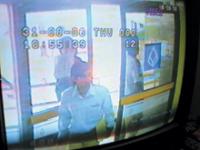
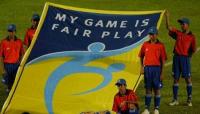
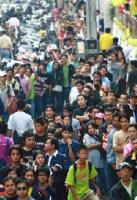
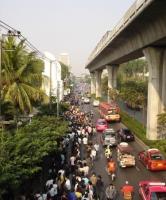
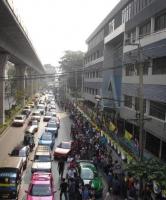
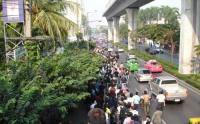
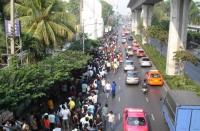
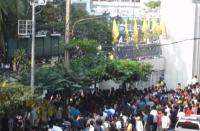
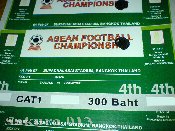
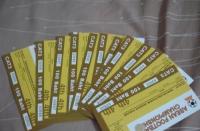
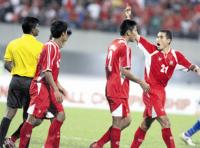
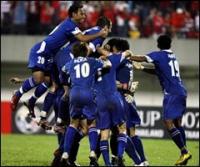
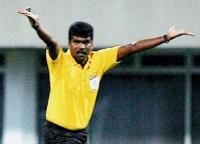



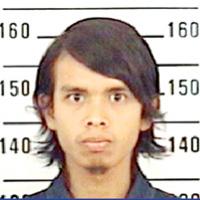
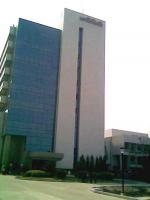
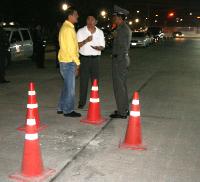
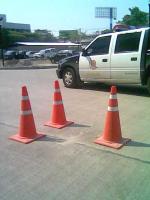
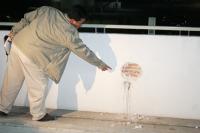
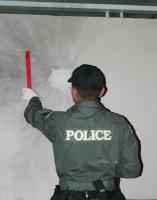
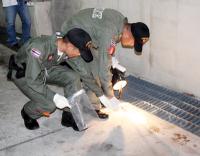
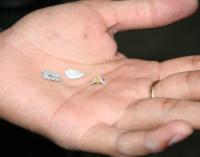
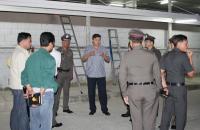









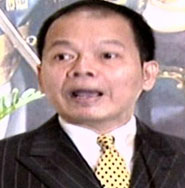

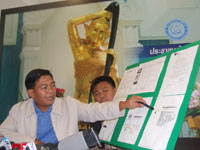


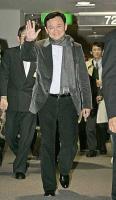
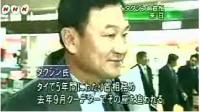
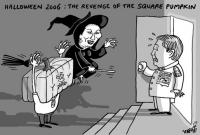
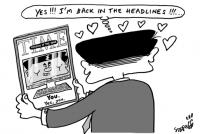
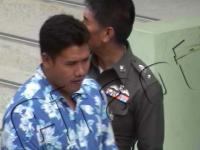
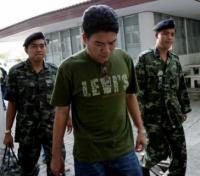
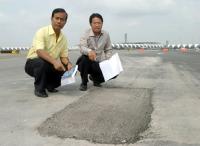
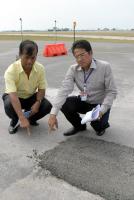
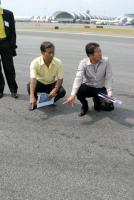
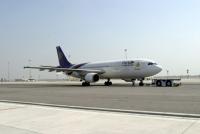
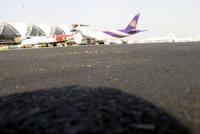
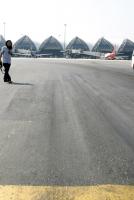
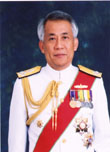
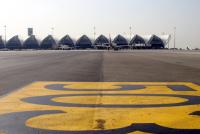
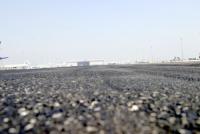
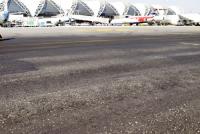
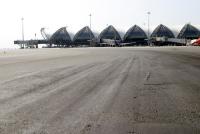
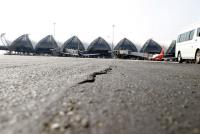
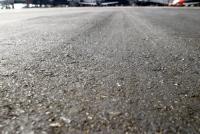
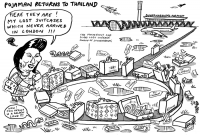
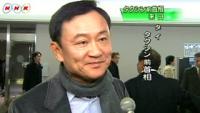
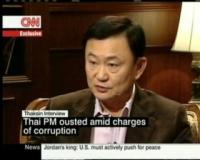

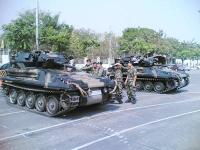
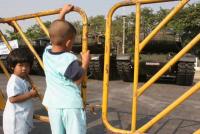
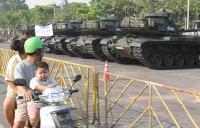
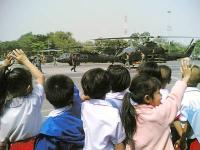
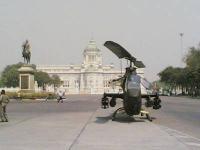
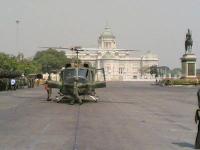
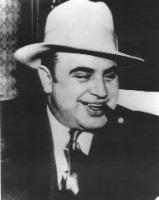
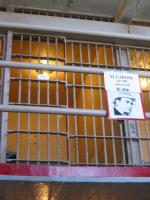






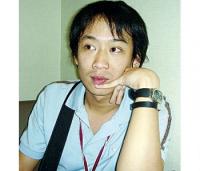

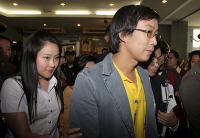

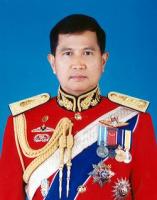
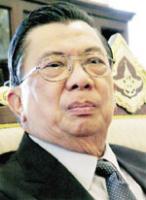
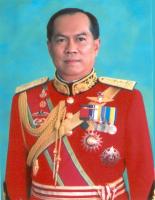
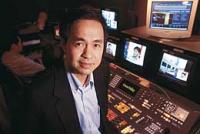
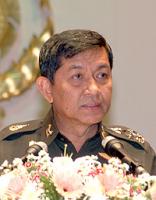
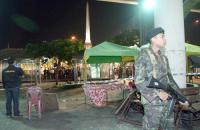
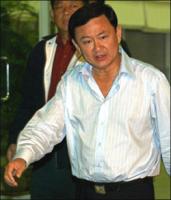
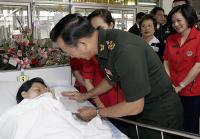
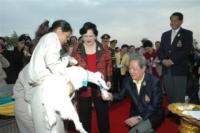
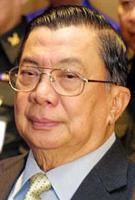
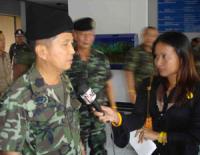
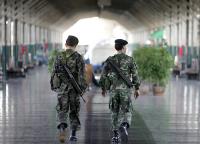
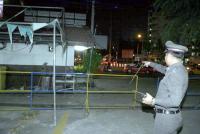
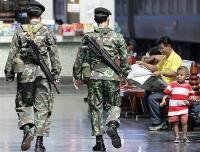
Bangkok Bombings: Suspects Identified
in Thailand News
Posted · Edited by asd
Sunday, December 31, 2006
Earlier in the evening, bombs had gone off at six locations across the city, from about 6:00 p.m. to 7:30 p.m. Twenty-five people were injured and three later died at hospitals from their injuries.
The biggest toll was at Victory Monument, where 17 people were injured, two of them dying from their injuries. Other targets were a police booth at Saphan Kwai intersection, where two people were injured, and a market in Khlong Toei, where three people were injured, one fatally.
At Seacon Square shopping mall, a bomb was found in a trash can inside the mall and taken to the parking lot, where it exploded without injuring anyone. Police booths on Sukhumvit Soi 62 and in suburban Nonthaburi were also hit, but there were no injuries.
The bombs used in Bangkok, like those in the South, comprised high-powered explosives and ammonium nitrate stuffed in body spray cans and wired to 9V batteries and Casio watches.
----------------------------------------------------------
Footage from security camera at a shopping complex showed that Thawansak was key suspect for placing time bomb in Bangkok.
Mr Thawansak Paenae was allegedly caught in security footage by a CCTV system at mobile phone shop in Seacon Square shopping mall.
He was among the three suspects whom DSI believe could be involved in the deadly bombing waves in Bangkok. He has been charged in a criminal case but had escaped.
Thawansak'house
13/5 Moo 2 , Betong district ,Yala province, PO Box 95110
----------------------------------------------------------
Seacon Square shopping mall
Seacon Square is a large indoor shopping mall in Prawet District, Bangkok. The shopping center covers a total area of 500,000m2 and houses more than 400 stores. The building is 500 meters long, making it one of the largest shopping malls in Thailand.
Seacon Square is located on the Srinakarin road, the main thoroughfare of Bangkok East.
The center, having a total leasable area of 180,000 square meters, is landlord to 15 major tenants and more than 400 specialty shops. Approximate more than 2 millions. visitors patronize the center monthly.
Seacon Square is a 7-level building with carpark in 5 levels B2, B1, outdoor on ground, L5 and rooftop. The mall is a single corridor configuration with 400 specialty shops and various major tenants flanking the walk-way.
Here's the link : http://www.seaconsquare.com/eng/about.html